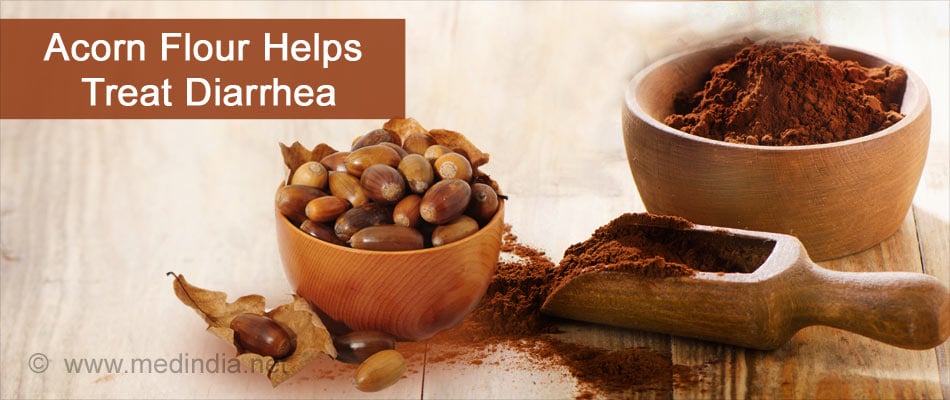- Anti-Herpes Simplex Virus Type-1 Activity and Phenolic Content of Crude Ethanol Extract and Four Corresponding Fractions of Quercus Brantii L Acorn - (https://www.ncbi.nlm.nih.gov/labs/articles/27899436/)
- Antiviral activity of Quercus persica L.: High efficacy and low toxicity - (https://www.ncbi.nlm.nih.gov/pmc/articles/pmc3905353/)
- Trees And Food From Acorns - (https://naldc.nal.usda.gov/download/ind43895104/pdf)
- Extracts from Quercus sp. acorns exhibit in vitro neuroprotective features through inhibition of cholinesterase and protection of the human dopaminergic cell line SH-SY5Y from hydrogen peroxide-induced cytotoxicity - (https://www.irbbarcelona.org/en/about-us/publications/scientific/extracts-from-quercus-sp-acorns-exhibit-in-vitro-neuroprotective)
Introduction To Acorns
Acorn is a nut of an oak tree with a hard outer covering, topped by a cupule. Oak trees were commonly seen in the Northern part of the globe such as in Europe and the United States of America. Till today, acorns are widely used in China, Japan and Korea.
There are approximately 600 different varieties of acorns and each acorn has a different scientific name.
There is a common belief that acorns are eaten only by squirrels, and are not meant for humans. In prehistoric times, acorns were used for other purposes apart from consumption as a food source such as construction material, firewood and production of rope.
For thousands of years, acorns have held an important position in human diet but still this super-food is not used widely. After extensive research it has been found that acorns are fit for human consumption, and in fact, are loaded with various vitamins and minerals. Acorn is also called 'functional food' because it provides health advantages beyond the traditional nutrients that it contains.
Besides having a healthy composition acorns offer an array of health benefits. Folliowing are a few of the benefits that the super-food provides:
- Acorns lower high blood glucose levels
- They reduce inflammation and oxidative stress
- They boost digestion
- Acorns serve as a concentrated source of energy
- They improve brain health
Nutrient Composition Of Acorns
Acorns are a concentrated source of energy. 100 grams of acorns contain 265-520 calories. Different types of acorns have different caloric content. It is also an excellent source of carbohydrates, dietary fiber and healthy fat. Such a composition makes one feel full and delays hunger pangs.
In addition to this, acorns are a good source of protein, vitamin A, vitamin C and vitamin E. Presence of these vitamins makes them beneficial for eyes, skin, brain and immune system.
Acorns are rich in minerals such as calcium and potassium, thus making them beneficial for bones, muscles and individuals with high blood pressure.
Acorns also possess antioxidant effects, thereby helping to lower oxidative stress. Besides this, acorns contain high concentration of 'tannin' which is responsible for their bitter taste.
Studies have also revealed that acorns are a good source of flavonoids and ellagic acid. These flavonoids and ellagic acid are believed to have anti-viral and anti-bacterial properties.
7 Evidence-Based Health Benefits Of Acorns
Used As An Anti-Diarrheal Agent
Studies have found that acorn flour is useful in controlling diarrhea. It works by:
- Reducing episodes of diarrhea
- Bringing down the rate of water loss from the body
- Reducing the volume of stools
Here are 2 different ways to consume acorn in order to get relief from diarrhea:
- Mix acorn flour with water to make a paste. Use this paste with honey to stop diarrheal episodes.
- Dry roast acorns and finely chop them. Consume these chopped acorns to get rid of diarrhea.
Bottom-line: Acorns protect the gut and help in the treatment of diarrhea.

Protects Against Alzheimer's Disease
Antioxidants present in acorns inhibit cholinesterase (an enzyme present in the brain) which further reduces the symptoms of Alzheimer's disease such as confusion, memory loss, inability to think, and concentration.
High levels of oxidative stress is a major risk factor in the development of Alzheimer's disease. These antioxidants further lower the level of oxidative stress and prevent the death of brain cells. Gallic acid present in acorns possess brain-protective property, thus delaying the onset or worsening of Alzheimer's disease.
Regular consumption of acorns combined with intake of medications improves the efficacy of Alzheimer's disease treatment and helps in the stabilization of the cognitive status of Alzheimer's disease patient.
Bottom-line: Acorns prevent the death of brain cells, improve functioning of brain cells and reduce the symptoms of Alzheimer's disease.
Acorns For Diabetes
Compounds present in acorns inhibit the action of an enzyme called 'alpha-glucosidase'. Such an inhibition delays the digestion of carbohydrates and slows down the conversion of carbohydrates into simple sugar or glucose during digestion. This further prevents spike in the blood glucose levels. Thus, acorns can contribute to the management of diabetes mellitus.
High levels of oxidative stress can lead to:
- Insulin resistance
- Low insulin sensitivity
- Beta-cell dysfunction (producers of insulin)
- High blood glucose levels
Such high levels of blood glucose and oxidative stress for a prolonged period can negatively affect the eyes, kidneys, veins and the heart (diabetic complications). Acorns are rich in antioxidants which can combat the negative effect of oxidative stress and help in lowering high blood glucose levels.
Bottom-line: The high antioxidant content of acorns and presence of healthy compounds in them help in the management of diabetes and its complications.

Anti-Asthmatic Effects Of Acorns
Gallic acid, ellagic acid and tannic acid are three strong antioxidants present in acorns. These antioxidants possess anti-asthmatic effect and they work via following mechanisms:
- Gallic acid, ellagic acid and tannic acid reduce the secretion of compounds in the body that otherwise increase inflammation of airways which further makes breathing difficult.
- Reactive oxygen species causes narrowing of the airways of the respiratory tract. Antioxidants present in acorns neutralize these reactive oxygen species and thus helps in the management of asthma.
Bottom-line: Acorns contain antioxidants that fight against asthma and also reduce asthma symptoms.
Anti-Herpes Simplex Virus Type-1 Activity Of Acorns
Herpes viruses are the most frequent cause of viral infections in individuals with poor immune system. A very interesting research has found that acorns are a promising anti-herpetic herbal medicine. Acorns possess anti-viral activity. It protects the body against viruses via following mechanisms:
- Healthy compounds present in acorns protect the cells of the body by preventing the contact between the virus and the cells.
- They further inhibit the multiplication and replication of virus and thus, they help in lowering the spread of virus to different parts of the body.
- Flavonoids and tannins present in acorns possess anti-bacterial, anti-inflammatory and antioxidant properties. This further helps in fighting against the virus.
Bottom-line: Acorns kill the viruses and reduce their spread.
Anti-Bacterial Property Of Acorns
Acorns have a tremendous potential as an anti-bacterial agent against different bacteria. This particular beneficial property of acorns is attributed to the presence of tannins in it.
Tannins also help in wound healing due to its astringent property. They also inhibit the development and spread of bacteria and microbes, and thus prevent further spread of bacterial infection.
Thus, consumption of acorns can help in eliminating the bacteria from the body.
Bottom-line: Bacterial infections are reduced with consumption of acorns.
Acorns Lower High Cholesterol Level
Studies have found that acorn consumption has a beneficial effect on blood cholesterol levels. Such an effect is attributed to the presence of 'tannins' and unsaturated fatty acids (healthy fat that helps in lowering high cholesterol levels) in acorns.
Tannins help in reducing LDL (bad) cholesterol and triglyceride levels. They inhibit the enzyme that leads to the production of cholesterol in the body. Tannins also promote the excretion of cholesterol and reduce its absorption.
Furthermore, acorns have a very healthy fat composition. Such a composition reduces the level of bad cholesterol and acts to protect the heart.
Bottom-line: Acorns contain healthy fat that lowers high level of cholesterol and triglycerides.

Top 5 Ways To Enjoy Acorns
- Grind them into flour- Leach the acorns properly, allow them to dry and finally grind them into flour.
- Use acorn flour to make breads, biscuits and even flatbread.
- The easiest way to enjoy acorns is to dry roast them. Sprinkle some salt and eat them just like groundnuts.
- Add some roasted and chopped acorns to your bowl of salad.
- Make your own acorn powder and mix it with coffee powder to prepare your hot cup of acorn coffee.
- In Korea, acorn starch is commonly used to prepare acorn jelly.
Note: Acorns have a bitter taste. Such a taste is due to high tannin content. You can remove the bitterness by dropping the acorns in a pot of water and boil them until the color of the water changes to dark brown. Strain the acorns and discard the water. Continue the same procedure until the color of the water stops changing. This process is known as leaching.









